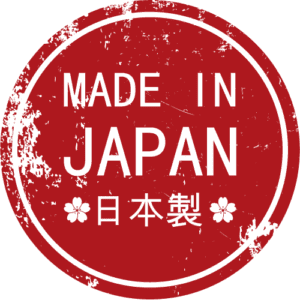Japanese Franchises in the US
The lines between East and West are blurring faster than ever, and at the forefront of this cultural collision are Japanese franchises. Japanese brands are having a moment in the US, and it’s apparent that it is more than just a passing fad.
If you are an entrepreneur who wishes to bring the magic of Japan to your area, this blog post will introduce possible Japanese franchise opportunities.

Please note, Waldrop and Colvin PLLC is not associated with any of the mentioned brands in this post. However, if you are considering a franchise opportunity, we encourage you to seek guidance from franchise legal counsel to assist in the business and legal aspects of franchising and negotiating the right deal.
RAMEN
When you picture Japan, one of the first images that come to mind is a steaming bowl of ramen. This noodle dish has transcended its culinary roots to become synonymous with Japan itself. The ramen business is showing to be not just a culinary phenomenon, but rather a prime franchise opportunity.
JINYA RAMEN BAR
Founded in 2000 in Tokyo, Japan, JINYA Ramen Bar has successfully established its presence in the United States since opening its first US branch in California back in 2010.
Franchise Offering
JINYA Franchise, Inc. offers franchises for the operation of casual dining restaurants and fast casual restaurants that offer prepared ramen dishes with a diverse selection of broths, noodles, proteins, sauces and garnishes, as well as rice bowls, Japanese appetizers and other food and beverage products for on-premises consumption, off-premises consumption and catering events. We explore some of the details provided in their disclosure document below.
Franchising Offers
JINYA Franchise, Inc. franchises two different restaurant concepts, with various sales channels
Casual Dinings Restaurants vs. Fast Casual Restaurants
- Casual dining restaurants provide a full-service experience where customers sit down on tables, waiters get their orders, food gets delivered to their tables, and a bill is handed once the customer is done eating.
- Fast casual restaurants utilize a self-service or limited-service model where customers usually order and pay for their food at a counter or kiosk, receive their order, and then find seats thereafter.
On-Premises Consumption Vs. Off-Premises Consumption Vs. Catering Events
- On-premises consumption refers to traditional dine-in experience where customers visit the restaurant and enjoy their orders within the restaurant’s premises.
- Off-premises consumption encompasses any situation where customers purchase food from a restaurant but consume it elsewhere. Typical examples of this include takeouts, drive-thru’s, and delivery services
- Catering events involve providing food services for a specific event at a location other than the restaurant itself. Here, customers usually create customized menus and the restaurant prepare the food in advance and deliver it to the event venue.
Investment Needed
The initial cost needed to operate a 2,500 to 5,000 square foot fast casual JINYA Ramen Bar is estimated to be approximately $1,408,500 to $3,081,200. JINYA Ramen also offers an Area Development Agreement, the initial investment of which is estimated to be around $2,867,000 to $6,217,400.
Area Development Agreement
- An Area Development Agreement, sometimes also known as a Multi-Unit Development Agreement, is specific type of franchise agreement used when a franchisor wants to expand its presence in a particular geographic area. In this set-up, an Area Developer commits to opening and operating multiple franchise units within a designated territory. This concentrated development benefits the franchisor by accelerating brand presence in the the given territory. In return, the Area Developer receives exclusive rights to develop the franchise within the area, maximizing their potential for profitability.
Initial Franchise Fee
Upon signing a Franchise Agreement, a franchisee must pay JINYA Franchise Inc. $50,000.00. This amount is non-refundable.
Grand Opening Support Fee
JINYA Ramen Bar also collects $15,000 as Grand Opening Support Fee upon signing of the Franchise Agreement. If a franchisee opens a subsequent JINYA Ramen Bar, the Grand Opening Support Fee for the subsequent restaurant will be $10,000.
A Grand Opening Support Fee is is a one-time payment made to by the franchisee to the franchisor which is specifically used to support the launch and marketing efforts surrounding the opening of the new franchise location.
Royalty Fee
JINYA Ramen Bar collects from its franchisees 5% of gross sales which is payable on the 10th and 25th day of each month.
Franchises in the US
According to its 2023 Franchise Disclosure Document (“FDD”), as of 2022, JINYA Ramen has 43 franchised outlets in the US in the following states: Arizona, California, Colorado, District of Columbia, Florida, Georgia, Indiana, Louisiana, Maryland, Nebraska, Nevada, North Carolina, Oklahoma, South Carolina, Texas, Utah, Virginia, Washington
MARUFUKU RAMEN RESTAURANT
Tracing its roots to the vibrant streets of Fukuoka, Japan way back 2000, Marufuku Ramen Restaurant now offers its signature dishes in the US subsequent to the opening of its California location in 2017.
Franchise Offering
Marufuku Franchising, LLC offers sit down restaurants with table service that offer authentic Hakata-style tonkotsu ramen and other Japanese dishes, beer, and sake.
Sit Down Restaurant
- A sit down restaurant is just like a casual dining restaurant where customers receive full table service from the restaurant’s service staff.
“Authentic Hakata-Style Tonkotsu Ramen”
- As described by Marufuku Ramen Restaurant, its ramen features a milky and umami-rich broth made from boiling pork bones for long hours, ultra-thin artisanal noodles that match perfectly with the broth, and cha-shu made from specially selected pork, making it an authentic Hakata-style tonkotsu ramen.
Investment Needed
The initial cost needed to operate a Marufuku Ramen Restaurant is estimated to be approximately $1,029,000 to $1,540,000.
Initial Franchise Fee
Upon signing a Franchise Agreement, a franchisee must pay Marufuku Franchising, LLC $30,000. This amount is non-refundable. Moreover, this fee is uniform for all new franchisees however, in certain circumstances, Marufuku Ramen Restaurant may reduce or waive a fee.
Royalty Fee
Marufuku Ramen Restaurant collects from its franchisees 5% of gross sales twice a month.
Marketing Fund Contribution
Marufuku Ramen Restaurant has established a Marketing Fund and collects from its franchisees 1% of its gross sales twice a month. According to its 2023 FDD, Marufuku Ramen Restaurant may increase a franchisee’s marketing fund contribution to 3% of gross sales upon notice.
Marketing Fund
The Marketing Fund is explained by Marufuku Ramen Restaurant in its FDD as used for the enhancement, promotion and protection of its System and Proprietary Marks. Marufuku Ramen Restaurant indicates in its FDD that it has the right to direct all advertising, media placement, marketing and public relations programs and activities financed by the Marketing Fund, with final discretion over the strategic direction, creative concepts, materials and endorsements used, and the geographic, market and media placement and allocation. Marufuku Ramen Restaurant’s franchisees are directed to participate in all advertising, marketing, promotions, research, and public relations programs instituted by the Marketing Fund.
Franchises in the US
According to its 2023 Franchise Disclosure Document (“FDD”), as of 2022, Marufuku Ramen Restaurant has 3 franchised outlets in the US located in California and Texas.
RAKKAN RAMEN
RAKKAN Ramen started its humble journey in 2011 with a four-seat restaurant in Tokyo, Japan. Its commitment to authentic flavors captured the hearts of its customers, fueling its expansion within Japan, and ultimately, leading to its global debut through its Los Angeles, California location in 2017.
Franchise Offering
RAKKAN USA Franchise, LLC offers a quick serve restaurant outlet which provides a variety of ramen dishes with various types of broth, Japanese appetiziers, specified condiments and ingredients, and other food, beverages and related products.
Investment Needed
The initial cost needed to operate a RAKKAN Ramen outlet is estimated to be approximately $379,500 to $865,000. RAKKAN Ramen also offers an Area Development arrangement, the initial cost of which is estimated to be $399,500 to $885,000.
Initial Franchise Fee
Upon signing a Franchise Agreement, a franchisee must pay RAKKAN USA Franchise, LLC $20,000. This amount is non-refundable. On the other hand, if an Area Development Agreement (“ADA”) is entered into, a development fee equivalent to $20,000 multiplied by the number of additional outlets committed to be opened under the ADA must be paid.
Royalty Fee
RAKKAN Ramen collects from its franchisees 5% of gross revenues twice a month every 10th day of each month.
Gross Sales Vs. Gross Revenue
- Gross Sales is the total revenue generated from the sale of a company’s core products or services before any deductions for expenses or costs
- Gross Revenue is the total income a company receives from all its operations before any deductions, encompassing not only core product sales but also any additional income streams such as interest on investments, sales of by-products, or even rental income from unused property
Franchises in the US
According to its 2024 Franchise Disclosure Document (“FDD”), as of 2023, RAKKAN Ramen has 12 franchised outlets in the US which is double the number of its outlets from 2022. These 12 franchised outlets are located in the following states: California, Colorado, Georgia, Illinois, Nevada and Texas.
CURRY
Another delicious bowl that simmers to mind when thinking of Japan is curry. This comfort food has translated to a warm embrace in a bowl with its customizable broths, melt-in-your-mouth ingredients, and endless topping options. The business involving this cultural touchstone has certainly proven its franchise potential.
GO GO CURRY
Franchise Offering
55 Curry Franchising LLC (doing business as Go Go Curry) offers a quick service, traditional Japanese comfort food restaurant offering high quality, traditional Japanese curry from the Ishikawa prefecture, known as Kanazawa curry. Go Go Curry offers both sit-down and take out service.
Kanzawa curry refers to a unique twist on the classic Japanese curry rice dish which features a thicker, richer sauce with caramelized onions for added depth of flavor, and often comes topped with a hearty fried pork cutlet.
Investment Needed
The initial cost needed to operate a Go Go Curry restaurant is estimated to be approximately $284,514 to $675,726. Go Go Curry also offers an area development franchise, the initial cost of which is estimated to be approximately $309,514 to $720,726.
Initial Franchise Fee
Upon signing a Franchise Agreement, a franchisee must pay 55 Curry Franchising LLC $49,000. This amount is non-refundable. On the other hand, an Area Development Agreement (“ADA”) is entered into, an area development fee ranging from $74,000 to $94,000 must be paid.
Royalty Fee
Go Go Curry collects from its franchisees 6% of gross revenues weekly unless an alternative period is designated by Go Go Curry.
FRANCHISES IN THE US
According to its 2023 Franchise Disclosure Document (“FDD”), as of 2022, Go Go Curry has 3 franchised outlets in the US located in New Jersey and New York.
CONSUMER PRODUCTS
Japan’s reputation for resourcefulness and innovation extends far beyond technology and bullet trains as Japan is able to take the ordinary, everyday items we use and transform them into desirable and accessible products – and further make a profitable business out of it.
MINISO
Franchise Offering
Miniso Depot Franchisor LLC offers a retail store that sells stylish, affordable consumer products in the areas of home, beauty, electronics, fashion, stationery, and more.
A retail store is a physical establishment where products are sold directly to consumers. Put it simply, a retail store is a place buyers go to in order to purchase things.
Investment Needed
The initial cost needed to operate a Miniso franchise under its “Model A” (consignment program) is estimated to be approximately $283,800 to $368,000 while the initial cost to operate a Miniso franchise under its “Model B” (purchase inventory program) is estimated to be approximately $210,800 to $417,500.
Model A (Consignment Program) Vs. Model B (Purchase Inventory Program)
- Model A (Consignment Program) is a model of Miniso in which franchisees will be provided with all of the Miniso-branded and non-branded products on a consignment basis. Under this model, franchisees will be solely responsible for managing and operating their store.
- Model B (Purchase Inventory Program) is a model of Miniso in which franchisees purchase all of the Miniso-branded and non-branded products that will be sold in their store. Essentially, under this model, goods will not be provided to franchisees on a consignment basis. Instead, the franchisee purchases all inventory outright from the supplier.
Initial Franchise Fee
Upon signing a Franchise Agreement, a franchisee must pay 55 Miniso Depot Franchisor LLC $30,000. This amount is non-refundable. Moreover, Miniso provides in its FDD that the franchise entered into will be for a 3-year term.
Consignment Revenue Payments & Renewal Franchise Fee
Unlike typical franchisors that collect royalty fees from its franchisees, Miniso collects Consignment Revenue Payments or generates revenue from the Purchase Inventory Program.
Under Model A, Miniso Depot Franchisor LLC collects from its franchisees 45% of gross revenue from sales of general merchandise products sold in the franchisee’s store and 65% of gross revenue from sales of Miniso-sourced local purchase products sold in a franchisee’s store. This is collected on a weekly basis.
Under Model B, the franchisee purchases general merchandise products at 50% of the retail price and Miniso-sourced local purchase products at 65% of the full retail price.
Franchises in the US
According to its 2024 Franchise Disclosure Document (“FDD”), as of 2023, Miniso has 9 franchised outlets in the US located in Florida, Illinois, Mississippi, New Jersey, Nevada, and Texas. They have 111 company owned outlets.
AFTER-SCHOOL CENTER
A unique franchise concept Japan introduces to the world of franchising is after-school learning centers. This type of business model offers personalized math and reading programs, empowering young minds. This innovative approach fills a growing need for after-school enrichment, as busy parents seek extra support for their children’s academic development.
KUMON
Franchise Offering
Kumon North America, Inc. offers an after-school center that provides math and reading programs using the Kumon Method of learning. Children are given an opportunity to attend Kumon Centers twice each week for approximately 20-30 minutes per subject, and complete daily assignments at home on non-Center days .
Investment Needed
The initial cost needed to operate a Miniso franchise under its “Model A” (consignment program) is estimated to be approximately $73,783 to $165,920.
Model A (Consignment Program) Vs. Model B (Purchase Inventory Program)
- Model A (Consignment Program) is a model of Miniso in which franchisees will be provided with all of the Miniso-branded and non-branded products on a consignment basis. Under this model, franchisees will be solely responsible for managing and operating their store.
- Model B (Purchase Inventory Program) is a model of Miniso in which franchisees purchase all of the Miniso-branded and non-branded products that will be sold in their store. Essentially, under this model, goods will not be provided to franchisees on a consignment basis. Instead, the franchisee purchases all inventory outright from the supplier.
Initial Franchise Fee
Upon signing a Franchise Agreement, a franchisee must pay Kumon North America, Inc. $5,000. This amount is non-refundable.
Royalty Fee
Kumon collects from its franchisees 3 types of royalty fees by debiting the franchisee’s accounts through electronic fund transfer (“EFT”) every 17th day of the month (or the next business day):
Initial Enrollment Royalty vs. Monthly Royalty During TLP vs. Monthly Royalty After TLP
- Initial Enrollment Royalty Fee which is $30 multiplied by the number of newly enrolled students
- Monthly Royalty During Temporary License Period (“TLP”) which is $40.50 multiplied by the number of full-payment students enrolled, and $20.25 multiplied by the number of partially exempt and/or prorated tuition students for each Subject-Franchise
- Monthly Royalty After Completing the TLP which is $36 multiplied by the number of full-paying students enrolled, and $18 multiplied by the nuumber of partially exempt and/or prorated tuition students for each Subject-Franchise
Temporary License Period
- The temporary license period refers to an initial timeframe before a Kumon franchisee is granted a full license. This period is essentially the time between a franchisee’s initial onboarding into the Kumon franchise system and the franchisee’s full-fledged operation. The TLP begins on the Effective Date of the franchise and continues until the franchisee meets the TLP requirements for each Subject-Franchise.
- The TLP requirements are found under the Notes of Item 6 of Kumon’s 2024 FDD.
Franchises in the US
According to its 2024 Franchise Disclosure Document (“FDD”), as of 2023, Kumon has 1,637 franchised outlets in the US located in Alabama, Alaska, Arizona, Arkansas, California, Colorado, Connecticut, Delaware, District of Columbia, Florida, Georgia, Hawaii, Idaho, Illinois, Indiana, Iowa, Kansas, Kentucky, Louisiana, Maine, Maryland, Massachusetts, Michigan, Minnesota, Mississippi, Missouri, Montana, Nebraska, Nevada, New Hampshire, New Jersey, New Mexico, New York, North Carolina, North Dakota, Ohio, Oklahoma, Oregon, Pennsylvania, Rhode Island, South Carolina, South Dakota, Tennessee, Texas, Utah, Vermont, Virginia, Washington, and Wisconsin.
Meet the Author:
Christine Bontuyan is a lawyer in the Philippines and she is based in Cebu City. She earned her Juris Doctor degree in 2020. Apart from handling civil and criminal cases in the Philippines, Christine serves as a paralegal for reputable US law firms. She previously served as an elected public official in the Philippines as a Sangguniang Kabataan Chairperson from 2018 to 2023.
The information contained in this post was compiled from publicly available documents, and its accuracy may differ over time due to future changes, Franchises in the United States are sold through the FDD. If you are interested in a franchise and you meet the franchisor’s criteria, you will be furnished with a copy of the FDD used to offer franchises in your state. This document will contain multiple disclosures and a copy of the franchise agreement. It is important to work with a franchise attorney to evaluate a franchise opportunity.
Waldrop & Colvin is a franchise law firm and they help business owners (franchisors) and entrepreneurs (franchisees) evaluate franchise opportunities so they can make informed decisions. You can learn more about franchising and franchise law by exploring their site (Overview of federal franchise law and State-by-State franchise requirements).




